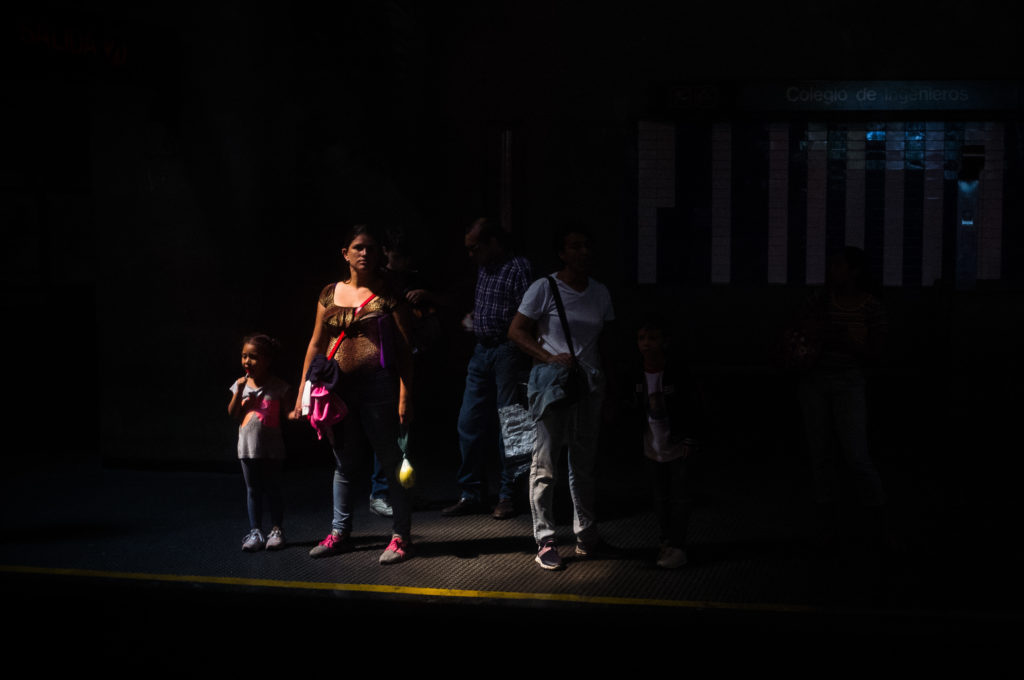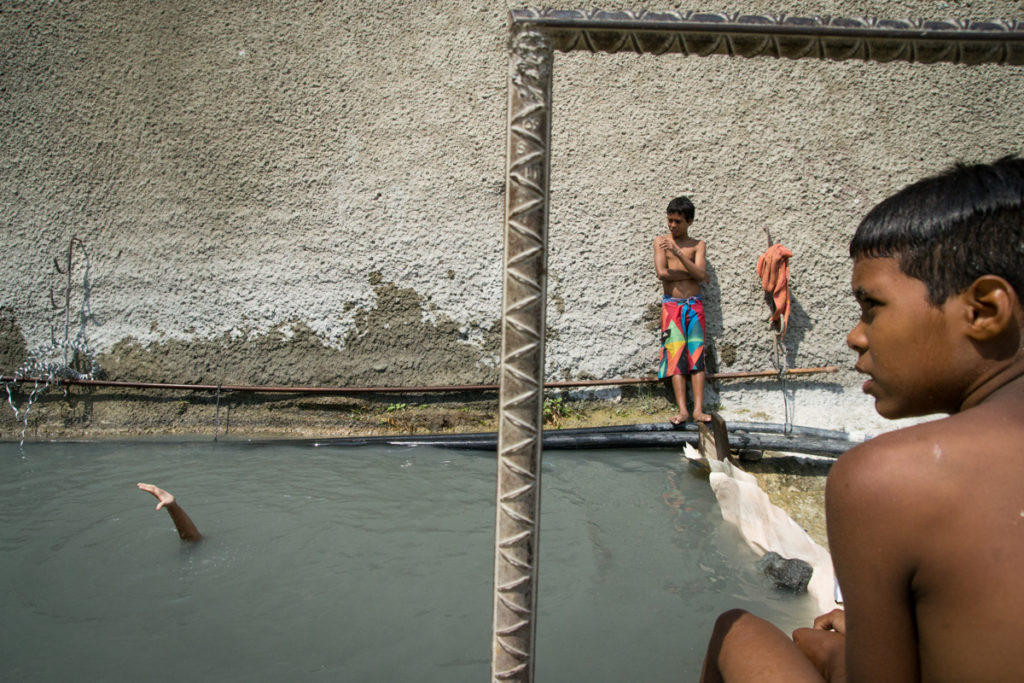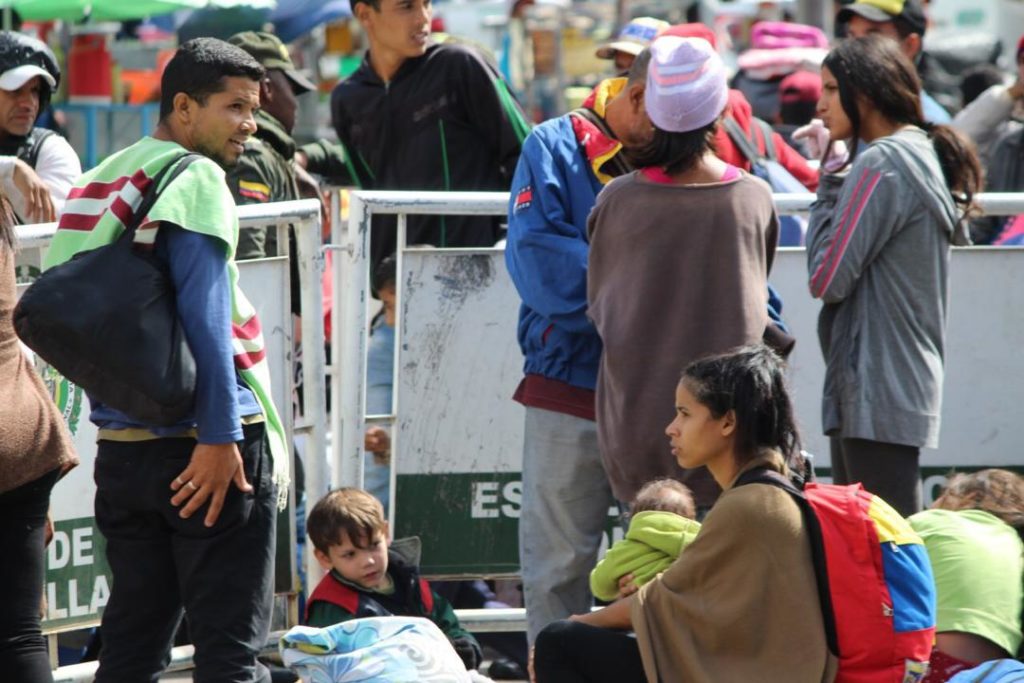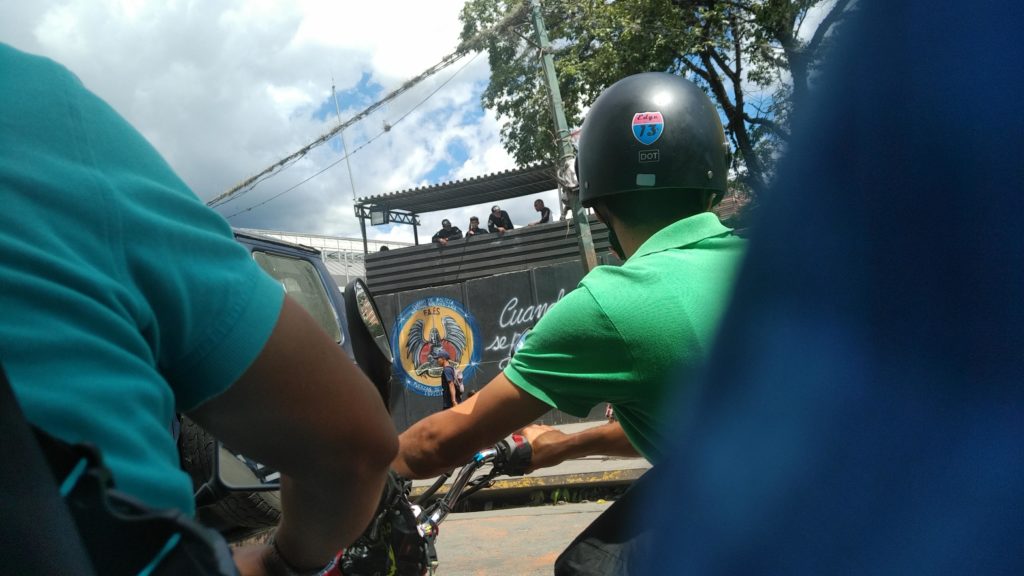Best of GEHA 2019
2019 felt more like an endurance test: we went through a lot during these 12 months. This time around, the compilation will be more focused on the events and larger themes that shaped the country this year instead of a larger chronological review.


Opposition supporters unload humanitarian aid from a truck that was set on fire after clashes between opposition supporters and Venezuela's security forces at the Francisco de Paula Santander bridge on the border line between Colombia and Venezuela as seen from Cucuta, Colombia, February 23, 2019. REUTERS/Marco Bello
Photo: Reuters Retrieved.
January
The exodus of Venezuelan migrants across the region continues. Arnaldo Espinoza shares the story of five young men from Yaracuy celebrating Christmas in a shelter in Quito. At home, Nicolás Maduro’s swearing-in ceremony at the Supreme Court showed his efforts to consolidate power against the will of voters were successful, as Quico explained. On January 23rd, Juan Guaidó, the new Speaker of the National Assembly, took over publicly as caretaker president. Nina Rancel describes that feeling of unexpected hope.
Special Mention: Misery, Actually: Street Vendors in Caracas Live One Day at a Time, Meily Chang.
February
While the country has now two presidents and faces again political upheaval in the streets, a new acronym has become the signal of terror: FAES, the special police task force. Gabriela Mesones gives the account from the mother of one of its victims. The attempt to introduce aid through the border with Colombia finally fails. Clifton Ross sees it clearly: the use of hunger as a political tool.
Special Mention: Gabriela Mesones & David Parra’s full coverage of the events in Cucuta.
March
Then, Venezuela went dark… On March 7th, electricity went out in the biggest blackout ever recorded. It was the first of several and until this day, many parts of the country continue to suffer daily power rationing. While some tried to explain what was going on in bare facts, others shared from struggling with boredom to gestures of protest. The diaspora did its best to help and the regime blamed an unlikely scapegoat. And some parts of Venezuela got more than darkness…
Special mention: One Metro Station reveals an Entire Country, Andrea Quintero.

“One Metro Station reveals an Entire Country” Photo: Cristian Hernández, 2019.
April
After the wave of blackouts passed and the situation “normalized”, it seems like our parallel crises are colliding with each other and taking a toll on all of us. Few pieces can reflect the personal cost like Victor Drax’s “A Heartbreak: What Chavismo is Really Doing to Us“. One of the individual highlights of the year IMHO, so spoiling more would be a disservice to readers.
But in the Colombian-Venezuelan border, the situation for migrants is getting even direr. In Maicao, desperate times called for desperate measures and Dylan Baddour told us about the joint work of local authorities and the UN refugee agency (UNHCR).
As our struggle continues to make headlines worldwide, many prefer to misread it in their own ideological terms, incapable of empathizing. Cristal Palacios Yumar offers a possible explanation under the concept that she calls as peace privilege.
The month ends with the uprising attempt of April 30th. A bigger gamble that didn’t pay off.
Special Mention: Inside Ciudad Guayana’s Illegal Gold Retail, Ramsés Ulises Siverio.
May
Looking for a possible peaceful resolution, the government of Norway takes the baton and organizes talks. Meanwhile, Margarita Island faces many problems to keep functioning as a viable vacation destination, as Roselis Gonzalez Rosas shares with us. David Parra describes the daily struggle in Mérida, that not only includes blackouts, but also gas shortages and communication failures.
Special Mention: What Game of Thrones Meant to Venezuelans Around the Globe, Jose Gonzalez Vargas
June
Cotiza, in Western Caracas, serves as a mirror of the city’s (and the country’s) biggest concerns: overwhelming poverty, deficient public services, deep political polarization. Gabriela Mesones captures that in detail in her journey in a place that was supposed to connect the capital and La Guaira through a modern tunnel, now abandoned in limbo. Another of the CC’s highlights this year, this article also contains great photographs.
Chavismo has insisted on presenting itself as a movement that cares about feminism, but the facts tell a different tale: Luisa Kislinger makes the case on how the government actually has dragged Venezuelan women’s rights into the past and at greatest risk for their wellbeing.
Special Mention: The Double Crossroads, Isa Saturno.

“How Cotiza Survives”. Photo: Gustavo Vera.
July
In many businesses of Caracas, accepting dollars is becoming the norm and Isabella LaRocca explains how. Emily Avendaño shares the plight of migrants trapped in the Chilean border. For those who stayed behind in Caracas, the city has changed drastically. And that includes its nightlife. It has endured but also evolved into something quite different, as Victor Drax writes.
Special Mention: The Blackout Generation, Braulio Polanco.
August
This month is very special for Caracas Chronicles. On August 5th, our Spanish sister site Cinco8 came alive. What was the real relevance of the late Carlos Cruz-Diez in the global artistic sphere? Isabella Villanueva points at his influence not only crossing borders worldwide but also the limits of time. Ecuador requires a new visa for Venezuelans; with the deadline approaching, many migrants are on a tough race against time and weather to get from Cucuta to Rumichaca, on the other side of Colombia. David Parra’s first-hand dispatch is powerful. Femicides in Venezuela are rising at an alarming rate, as the authorities prefer to remain indifferent. Daisy Galaviz provides us with insight.
Special Mention: The First Band of the Venezuelan Diaspora, Rafael Osío Cabrices.

“The Last Race for Rumichaca” Photo: Joshua Collins.
September
Juan Guaidó confirms the collapse of the Barbados negotiation while Maduro comes with a cheaper alternative to his political needs, formed by his regime and a submissive “opposition”.
For some, leaving Venezuela is a matter of life or death. Mabel Sarmiento tells us about HIV+ patients.
There’s a new escape route for Venezuelan migrants in Bolívar State, colliding with illegal mining. Adriana Tovar focuses on how vulnerable children and teenagers are leaving on their own, becoming targets for gangs.
In 1941, the strange case of a woman who impersonated a man for a long time, made quite an uproar in Caracas society. Jose Gonzalez Vargas delivers a great chronicle.
Special Mention: We Need a Sovereign Wealth Fund, Michael Khayan.
October
Three months after the Bachelet Report and weeks after an independent UN fact-finding mission is approved, Venezuela is elected to be a member of the UN Human Rights Council.
Journalist John Carlin was supposed to come to Venezuela to talk about South Africa’s transition and how such lessons could be applied here, but he was refused entrance into the country. Manuel Llorens expresses how his dream turned into a real-life nightmare.
The whole crisis has hit Zulia pretty hard (and after the blackout of March, things got incredibly worse). It has even reached cultural traditions like regional dishes which are now more difficult to make and unaffordable to eat, according to this excellent report by Francisco Rincón.
Special mention: The Day the Frogs Stopped Singing, Tony Frangie Mawad.
November
Access to dollars is creating a gap between those who have them and those who don’t. First up, Victor Drax brings the case of a music festival in Caracas and his quest for tickets. Then, Arnaldo Espinoza witnesses a twisted version of the Black Friday in Caracas’ largest shopping center. In the face of the damage caused by Chavismo and the success of Trump and Bolsonaro, Issac Nahon Serfaty asks whether Venezuelans will soon turn to the right. The answer could surprise you…
Special mention: My Red Education, David Parra.

“What Is Happening in Venezuela’s Protected Capital?”
December
The month begins with a breakout story from investigative journalism outlet Armando.Info (which CC profiled earlier in the year), which revealed how opposition members of the National Assembly were in cahoots to help the men behind the CLAP web of corruption.
Raúl Stolk returned to Caracas after one year and offers a detailed account of how life is in the capital. People there are not just trying to get by, some are trying to rebuild some normalcy.
Ana Camila Sánchez León tells us about a terrible trend of violence against children that comes as collateral damage from the migrant crisis.
After the end of World War II, many European immigrants played a part in shaping modern Venezuela. Some of them were scientists, mathematicians, physicists and engineers. Jose Alvarez-Cornett introduces some of their stories.
Special mention: The coverage of the 20th anniversary of the Vargas tragedy.
Caracas Chronicles is 100% reader-supported.
We’ve been able to hang on for 21 years in one of the craziest media landscapes in the world. We’ve seen different media outlets in Venezuela (and abroad) closing shop, something we’re looking to avoid at all costs. Your collaboration goes a long way in helping us weather the storm.
Donate



